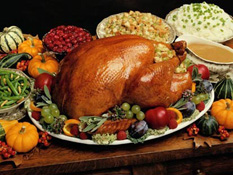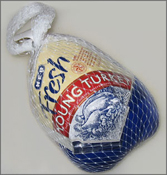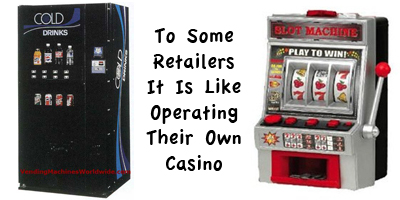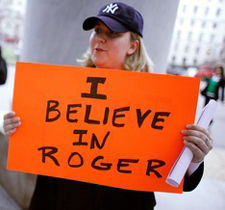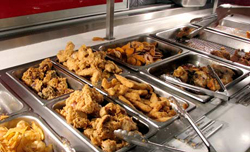Archive
“Give Me Your Tired, Your Poor, Your Huddle Masses” – The Supermarket Industry and it’s History With Immigrants

I do not know if it was all of the noise from the Talking Heads, no not the musical group from the late 70’s and early 80’s, what I am referring to is the shrill from the mouths of today’s news media personalities and the fact that the November 2010 elections have just finished up but I do feel a bit nostalgic if not at least very patriotic today therefore the reason for this particular post. While this years election was basically built up into a referendum on the public’s perception of the current Presidents performance in office for the last two years the national debate over Immigration Reform became lost in the swirls of accusations and other forms of character assassinations except for the occasional rant from a Tea-publican complaining that real Americans speak English.
I for one am so very proud to be working in such a progressively minded industry as the Retail Supermarket Industry. It was my pride in the Supermarket Industry along with the backdrop of the end of the 2010 election cycle that I was thinking about how my industry has given so much support to so many immigrant groups over the years. Yes I was sitting here envisioning all of our new immigrants arriving in this great land of ours and peering through the free binoculars that the international air carriers have provide them then suddenly each of the passengers see the Statue of Liberty in New York Harbor. With the tears rolling down my cheeks I see that from every window on the plane hundreds of sets of eyes zooming in on that famous plaque at the base of Lady Liberty. I wipe the tears off of my face knowing that these future citizens, or hopefully at least Green Card holders, are reading the lines etched at its base that the poet Emma Lazarus wrote many years ago – “Give me your tired, your poor, your huddled masses yearning to breathe free” with the caveat at the end of the plaque that added and owning your own supermarket.
The poet Emma Lazarus was the daughter of a successful family who resided in New York and was of Portuguese-Jewish decent. Her families roots in America go back to before the American Revolution. I kind of imagine that her father and grandfather were grocery store owners operating their business out of the first floor of their homes although they probably were not retailers at all.
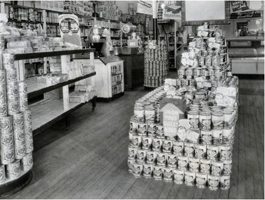
Depending on the particular area of the United States that an immigrant to America of the late 19th or early 20th century found themselves in the neighborhood food market or general store of the day was the type of business that opened its arms wide for a group of any hard-working people. It did not matter if they were Italian, German or Russian and it certainly did not matter if they were Christian or Jewish for the opportunities abounded for everyone in the food retailing business who possessed a strong work ethic. Some of the most successful family owned U.S. supermarket chains, pre-multinational mega corporation days, can be traced back to some form of immigrant roots of the late 19th or early 20th century.
Back in the day, so to speak, these immigrant operators of the neighborhood food stores spoke to their fellow immigrants in their native tongues and also made sure that they sold the products that their customers wanted to buy. Most of these old world products were certainly a source of comfort for their immigrant customers who found themselves in a new land, with a new language and somewhat strange unfamiliar things to eat.

A number of these early immigrant food retailers thrived and became extremely successful. There were some who built up their corner neighborhood store into 30 to 100+ regional supermarket chains by the 1960’s and 1970’s. During the years that these local neighborhood stores became city and state-wide supermarket chains the immigrant founders had become totally assimilated into their adopted country and as such found themselves speaking English like natives and marketing to their mainstream customers of the area that they serve. Today we might see those same early development patterns found in the first generation of immigrant supermarket operators and what is happening today with America’s latest wave of immigrants retailers.
Then in the 1980’s the consolidation bug had bitten the supermarket industry and we saw operators like Safeway, Kroger and even the grand daddy of supermarkets A&P buying up those older immigrant founded regional supermarket chains. Later that same decade with blood still in the water, along with the advent of a true global economy, European retailers like Koninklijke Ahold N.V. (“Ahold”) and Delhaize Group (Euronext Brussels:DELB) (NYSE:DEG) came to the colonies and began to snap up retailers on the East Coast. One after one most of these immigrant founded family supermarket chains began to disappear from the retail landscape.

There was one other event in the 1980’s to hit the U.S. Supermarket Industry like a tsunami rolling over the beach in Thailand and of course this was the massive market share gathering thrust of Wal-Mart. Wal-Mart’s entry into the food retailing business was going to provide opportunities for our latest wave of immigrant grocers something that even the crowd from Bentonville has still not grasped even today. The mega multinationals mentioned in the preceding paragraph trembled with fear as Wal-Mart’s foray into the food retailing business gathered steam however the latest group of immigrants seemed to not give it a second thought. They would find opportunities from the ashes of the closed stores run by earlier immigrant families that Wal-Mart helped close.
The differences between the multi-nationals buying up regional family stores and the entry of Wal-Mart into the food retailing business was the size of their Super Center format stores. The large tracks of land necessary for a Super Center impacted local real estate prices by driving them up yet at the same time it increased the availability of closed smaller store locations after the Borg, if you do not know what is meant by this reference then just keep reading, swept through a community. At this same time Wal-Mart was building 100,000+ square foot sized stores which required huge swaths of land in which to build. Within their “Super Centers” Wal-Mart was dedicating a fair amount of floor space to selling food and non-food products commonly found in the supermarket of day. Slowly this retailing behemoth was choking off their competition in every aspect of food retailing from product cost, labor to the price real estate where a competing store might want to locate.
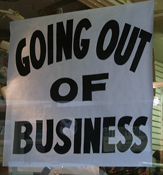
Well as Wal-Mart and other warehouse format stores got more and more into selling food products a number of smaller food retailers were put out of business. Chain stores saw a loss of market share as well during these turbulent times. In most cases chain stores worked to cut labor costs, reduce services as well as better control inventory costs so as to maintain their profit levels. Some of the chain’s stores however were no longer profitable and decisions were made to close these under performing locations. Smaller locally owned supermarkets and grocery stores that had served their communities for one or two generations began to look hard at their operations and work even harder to stop the hemorrhaging of their profit margins and customer base. More and more of these smaller retail grocery stores began to close their doors as well. It is interesting to note that some of these closed stores were 2nd and 3rd generation immigrant founded businesses. These owners had decided that they could know longer live the American Dream at least as a retail store operator.
It was not just the competition from the mega stores that was contributing to the closing of these smaller family owned retail stores. There were increasing general liability insurance costs, rising health insurance premiums, more government regulations, higher environmental fees, legal fees and growing labor costs that were proportionally higher than their competition. This wave of small business closures had been coming for a long time and the final blow was the competition from the mega stores. Today’s consumer wanted a wide selection of products and always at the lowest price regardless of the size of the store that they shopped in. Let’s not forget that other retailers were eating away at supermarket sales by stocking certain food products along with the variety of non-perishable food products available on the Internet.
Now the retail commercial real estate landscape contained more and more empty store fronts. Most were for lease however Wal-Mart in some cases, along with other larger retailers, would build a new Super Center in another part of a particular town or county and shutter the older one. They would still keep paying the lease on the old location and contractual terms allowed them to do this so as to keep a competitor from moving into the old location. This would contribute to a look of a ghost town in some local communities now that the shoppers were driving a few miles down the road to the new store.

That old saying is that when life gives you lemons then make lemonade is probably the most appropriate way to begin this part of the post. America’s most recent group of immigrants, those that have arrived in the last 25 years or so, seem to know how to make the best of the situation.
Whether they hail from South Asia, the Far East, Latin America or Eastern Europe some of these immigrants have shown that hard work and in some case cultural or language barriers can still go far in America. I might also add that in some metropolitan areas a bit of political correctness on the part of local politicians has also helped these new arrivals succeed in the supermarket business.
While readers can perhaps read in different things to which was written in the previous paragraph the point is that the latest wave of immigrants work hard, tend to stay grounded in business relationships with their fellow immigrants in their own communities or extended families venturing outside of this circle only when they have to. There is a view that local governments seem to bend over backwards to help these new business people get their start and on their feet. What I find ironic is that this type of assistance is what the existing retailers resent so much. A perception of favoritism towards the new immigrant retail supermarket operators is prevalent in a number of communities today.
There are stories in some locals that imply that these new immigrant owned food stores are given breaks by local regulatory agencies who might not seem to enforce the same set of rules that they do at other established food retailers. It has been said that some new immigrant owned food retailers seem to always have managers or employees on duty in the store when local agency staff come around to perform inspections that conveniently do not speak English. To hear some of the municipal inspectors try to tell someone in a store that there is this or that violation with products not being kept under the right storage temperatures and the employee just stare at them with a puzzled look of I do not understand what you are saying. The picture of an agency enforcement representative unable to communicate to the store associate must be priceless especially if the employee really does understand what actually is being said.
You might also have a new immigrant store operator who might say to the refrigeration company representative – what I have to dispose of my old refrigeration coolant because my cooler cases are using EPA outlawed coolant and I need to pay $1,000’s of dollars to a company to do this? Heck no I do not have to because I have a cousin or in-law of mine who does work on the side and said that he can do it for a few hundred dollars. I do not know where he will dispose of the old coolant. Perhaps it will be put in the retailers dumpster or possibly in another retailers dumpster in the same shopping center instead of being disposed of properly. Is my guy going to put the correct EPA coolant that costs so much back in my cooler case? Who knows. What that tile that I want taken up has asbestos in it and I will need to call someone special about it? No I have someone else that can do that job without the need to have a hazardous waste company come in and do it. Of course there are older more established retailers that have probably done the same thing and only worry about it when they get caught.
New immigrant business owners tend to be wary of employing non-fellow immigrant employees possibly just as immigrants did at the turn of the 20th century. There are many other similarities between this generation of immigrant grocers and ones from a hundred years ago.
So have things really changed that much in terms of immigrants owning and operating supermarkets today that did not happen a hundred years ago? Probably not. Are there opportunities for hard-working people with money from their communities or family to own and operate supermarkets? Yes there are. Do the closed store locations left by other retailers offer opportunities to our latest group of immigrants? Yes they do.
A new generation of store owners is living the American Dream here today and is ready to serve the food needs of our most recent wave of immigrants.
God Bless America.
AB
Copyright @ 2010 Supermarket Stories
Ice Hockey and Rugby Players Now in Your Local Supermarket
Nothing lends more credence to the viewpoint that today some people think more about themselves and behave in a seemingly narcissistic manner than by walking the aisles of their local supermarket. One thing that is certain is that manners seem to be something that is left at the front door when some individuals pull a shopping cart out of the row at the front of the store.
I have often wondered if the reason for some of the behavioral traits that I will write about in this post originate in the early days of mankind when we hunted for our own foods – the times of the cave man. Back then we fiercely competed with one another to bring down a wild animal that could fill our stomachs with much-needed sustenance and for the most part we did not want anyone else hording in on our kill. To me these primitive traits are especially prevalent in today’s supermarket meat and deli departments but more on that a little bit later in this post.
So let’s begin now with an example of some of these peculiar shopping habits. Some people use the grocery cart to stalk and capture their prey. Shopping cart etiquette begins when one selects a shopping cart or lasso’s it from the cart corral so to speak. This etiquette ends when you put the cart away at the end of your shopping trip – if you even do that.

First though let’s talk trash. The trash that I would like to talk about here is the type that a previous shopper leaves in a shopping cart for someone else to deal with. In today’s supermarket labor environment there just does not seem to be the resources to keep the shopping carts as clean as they should be and we put our food in these carts. Anyway this type of rude behavior can set the tone for a shoppers food purchase experience and it might not be a pleasant one at that.
I have seen, as well as been a victim of, shopping cart trashing syndrome. Having a store’s paper advertisement laying somewhere in the cart is not the type of trashing that I am referring to. No I am referring to the spilled coffee, empty coffee cups, crumbs from fast food establishments that a previous shopper had left in the cart. Another example is the smashed produce items in a plastic bag that some how got damaged between checking out and being tossed into the family mini van for the trip home. Tomato drippings, banana ooze and apple chunks along with leaking milk or spilled hot soup can make for a slippery shopping cart. One of the most disgusting examples of leaving one’s trash in a shopping cart is the used Kleenex or tissue. This just flat-out makes me want to heave. How can someone wipe their nose or their mouth in something and then leave it in a shopping cart? My favorite instance of extreme shopping cart trashing was when a customer, in a store that I was working at, brought a used diaper to the counter and said that it was left in the shopping cart she was using and could we dispose of it for them. Well at least that it was not a used Depends.
Anyway some people just live like swine and the common courtesy that one should exercise by taking their personal trash from the shopping cart before they push it into the middle of the road or cart corral is for the most part lost on them.

Back to our shopping trip now. With your narrator now in control of their wobbly wheeled shopping cart they begin their journey up and down the aisles of the store doing the hunter gatherer thing.
What I have really begun to fear at my own local grocery store is the Denny Crane like senior citizen, though they might not be carrying a firearm like Denny always seemed to be doing on Boston Legal, some seniors seem to use the shopping cart as their weapon of choice with which to wreak mayhem throughout the store.
Senior citizens seem to be most forceful in the dairy department. Is it their pressing need for yogurt or cottage cheese? Perhaps it is the juices that are commonly found in this department. Whatever the heck it is I can tell you that standing in front of a dairy case for more that 10 seconds can subject a shopper to a body check that would please any member of the audience watching the Montreal Canadians playing the Chicago Blackhawks. My knees have been bumped and checked by numerous 70-year-old seniors on more than several occasions.
While today’s supermarkets do not have yellow lines painted on their floors or traffic signals like roadways do there is an unwritten directional map that 99% of us follow when we are in the supermarket. Most people know that we go in the front door of a store then we follow the crowd around the perimeter of a store as we navigate up and down the center aisles as we go. The senior citizen either does not remember these mental directional maps or chooses to ignore them by claiming some form of mad cow disease.
Last week I was shopping in my local supermarket when I found myself in the dairy department and was immediately mesmerized by a shelf containing 16 or 17 types of yogurt. It took me a few seconds to decide what variety of this custard looking yogurt to take off the shelf when I felt a searing pain shooting up my leg from the area of my knee. As I looked down at my leg I saw that there was a shopping cart attached to my body exactly at knee level. At the handle of that shopping cart was a very prim and properly dressed white-haired lady roughly born about 20 years before Ronald Reagan. Of course she slammed into me from the opposite direction of the store’s normal traffic flow especially for that particular area. This proverbial little old lady stood about 4 foot 8 inches with an obvious calcium deficiency. No wonder I did not see her coming at me since she was short and on the wrong side of the road so to speak. Well she wanted in at the yogurt and nothing was going to stop her for getting to it not even my now wounded knee. There was no excuse me or an apology uttered from her lips instead there was just a self-absorbed look that also said out of my way you jerk.
Have you ever noticed how today’s grocery shopper is forced to confront all of the product displays in the shopping aisles? It used to be that a shopper would see a few of these product displays in the aisles during certain holidays like the aluminum pans around Thanksgiving or perhaps a promotional display from one of the sugar-water producers for a product featuring the image of some hyped up athlete.
Anyway pushing one’s basket up and down the aisles in the store today requires that the shopper dodge more of these numerous product displays that have been placed almost everywhere in the store. I guess these stores get promotional money or pay less for the products in these floor displays but that topic is for another post. In addition to dodging these promotional obstacles a shopper has to be aware that these displays can also be used as a refuge for some shoppers that wish to spring an ambush on their prey so to speak.
A few months back I was making my way through the spice aisle and all of a sudden, from behind a 5+ foot high floor product display for some new sugar substitute my shopping cart was t-boned by another cart even though I was not in the meat department. Apparently some shopper, a short one at that, had pushed their cart to the side of the previously mentioned floor display and was carrying on a conversation on their cell phone.
I do not know what made me more upset the fact that they were able to get phone reception in this store, because I never can, or that they slammed into my cart while they were talking on the phone obviously not looking where they were going or who might be around – kind of like the way some people drive today.
Well after the two of us eyed each other for a moment possibly waiting for the other one to say something the driver of the other shopping cart did not miss a beat with her phone conversation and now was slowly proceeding up the aisle away from me. I was thinking about running after her and demanding her driver’s license and proof of insurance or at least insist that we should exchange our stores valued customer saving card information but it was too late as another customer curtly said “excuse me” because I was now blocking the narrow aisle.
To be continued on another post.
AB
Copyright @ 2010 Supermarket Stories


